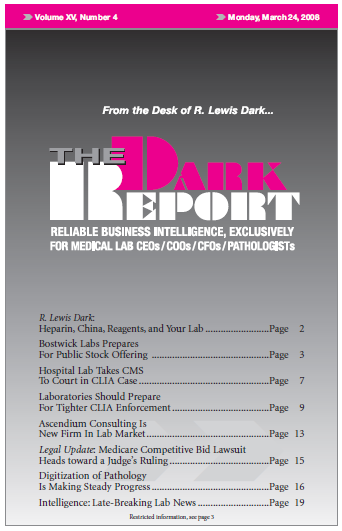LOOK TO APRIL 7 FOR THE NEXT DEVELOPMENT in the federal court case filed by three San Diego-area laboratories challenging the Medicare Laboratory Competitive Bidding Demonstration Project. That’s when the judge is expected to rule on the case. The latest development was on March 14, when federal lawyers made a court filing. They argued that …
Medicare Competitive Bid Lawsuit Heads toward a Judge’s Ruling Read More »
To access this post, you must purchase The Dark Report.


